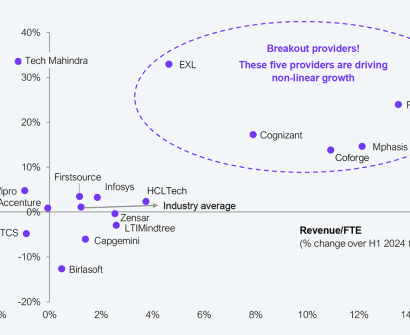Currently Empty: $0

Throughout my life, I’ve held expectations for people and events that when unmet, drastically influenced what I thought of said person or how I perceived the success of said event.
Expectations can be tricky because more often than not they set the stage for otherwise unrealistic ideas to manifest as reality, but only in our mind’s eye.
We live life by developing expectations for how we should act, how those around us should operate, and how (and when and where and why) events in our life should take place.
You may have the expectation to be married by 30 years old. You may have the expectation that your girlfriend does your laundry. You may have the expectation that the project you are currently working on at work will be what finally boosts you to that next tax bracket.
But have you ever thought of why you have those expectations in the first place?
Maybe you think being married by 30 allows optimal time for you to still have kids. Maybe you expect your girlfriend to do your laundry because your mom always did your dad’s laundry. Maybe you think this project at work will be your next big break because it’s what promoted your coworker.
Expectations are configurations of reality based on the standards we have set for ourselves, others, and the world around us.
The discrepancy between expectations and standards lies in our perception of reality and the intention behind formulating expectations based on standards.
What is a Standard?
By definition, a standard is something established by general consent as a model or example. An alternative definition for ‘standard’ is a structure built for or serving as a base or support.
Standards are established to keep everyone on the same page. Standards are the foundation of our understanding of the world around us.
If standards didn’t exist, how would someone be able to set a world record? How would they know what standard must be superseded in order to be better?
The standards by which you live your life may include things like ‘treat others with kindness, ‘every day is a chance to learn something new’ or ‘practice walking a mile in someone else’s shoes’.
All of these standards are rooted in characteristics or ideals we believe to be good or true- kindness, intelligence, and empathy.
These standards you have for yourself, are not unique, however. To a certain degree, most people believe that kindness is an admirable trait and should be practiced whenever the opportunity presents itself.
How kindness is practiced on an individual level, though, varies. You may deem it a supreme act of kindness to compliment a stranger. Someone else may consider donating money or time to an organization to be the greatest act of kindness. Still, others may consider their spouse making them dinner to be kind.
The interpretations of what kindness is to be considered and how it is to be best practiced are up to the individual. However, the standard has been set- kindness is a good thing and should be practiced frequently.
Standards, whether explicitly or implicitly set, established on a large scale or within a small group, are what keep society functioning on a basic level. Your interpretations of how standards are to be met are on the individual level and are heavily influenced by your environment.
What is an Expectation?
Expectations seem to deal with a whole other realm of the imagination.
By definition, to expect something is to consider it probable or certain. But by what standards are you considering something to be probable, to be certain?
Based upon the standards you have, rationalizing expectations become easy whether or not those expectations are realistic.
For example, let’s say that your standard is to marry someone who is career driven and ambitious. This standard was set because you grew up having two parents who were happily married and both highly successful in their careers.
Now, scrolling on Tinder, you find someone who is studying to be a lawyer and is close to graduating and starting their career. The context you have of this person along with your standard now forms an expectation in your mind.
When you go on your first date with this person, you now have the expectation that they are very career-focused, passionate, and ambitious. As the conversation flows, however, you come to find the opposite is true.
This person is going to law school only because their parents wanted them to and what they really want to do is be a stay-at-home parent.
Your unmet expectations based on the standards you have now turn you off to that person entirely.
Maybe they would have been a great stay-at-home parent, finding incredible success and passion in doing so. But they aren’t afforded the opportunity to prove that to you because reality has been tainted by the expectation you have formed in your own mind.
We justify our expectations based on the standards we have. However, expectations often become idealized and may only be actualized in the event that many realities align- an occurrence that infrequently transpires.
In the scenario above, your expectations would have had to align with the realities that a) the person is pursuing something they are passionate about b) they are hardworking in what they are pursuing c) they are talented in what they are pursuing. If those three realities don’t align, then your expectations are left unmet.
In What Ways Do Standards and Expectations Relate?
The standards we set for ourselves, others, and our lives become the foundation of our expectations.
Standards are created by our environment and experiences.
Expectations are created by our desire to fulfill those standards.
There are expectations rooted in fantasies, but there are also expectations rooted in logic.
If you have strong standards that you then logically base expectations on, it’s still not a guarantee that those expectations will become a reality, because reality is unpredictable.
Real Talk
Why am I contemplating the relationship between expectations and standards and how they are distinct?
Too frequently our life and the success, happiness, and fulfillment we get from life, is based on our expectations.
This can be a bad thing, seeing as expectations frequently go unfulfilled. If our perceived value of life is in the expectations we have, then we will often feel dissatisfied and discontent with ourselves, our life, and the people in it.
In an ideal world, we wouldn’t have expectations- if we get rid of the expectations, then we get rid of the potential for disappointment. But that’s wishful thinking.
Instead, I encourage you to understand the distinction between the standards and expectations you have in life.
Maybe some of your standards need to be reformed so your expectations are more realistic. Maybe, at face value, your standards are good and set you up for success. But when coupled with your expectations, your standards then feel ‘too high’.
There’s a balance in creating standards to live by, to ensure you are living the life you want (how you want it, with whom you want it, where you want it, etc).
If you don’t carefully assess the intentions behind your expectations and the standards they’re rooted in, then you may constantly be met with disappointment in life.
What’s key here is awareness. Awareness will bring you the ability to walk through life with standards and not get knocked down by expectations.
Source: GWFM Research








